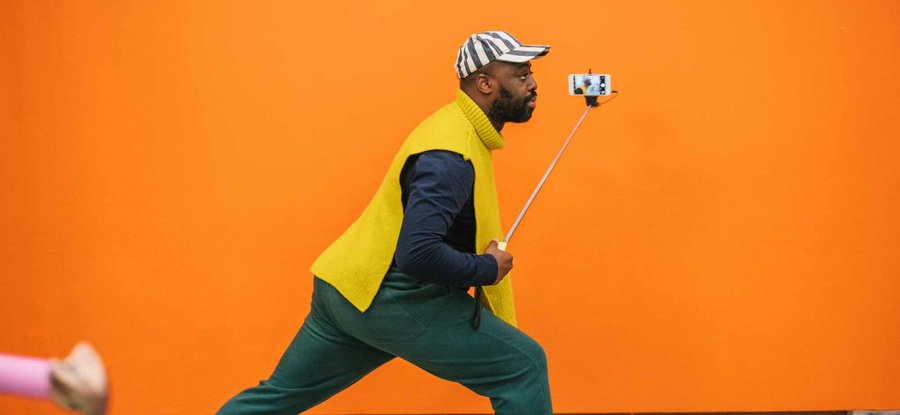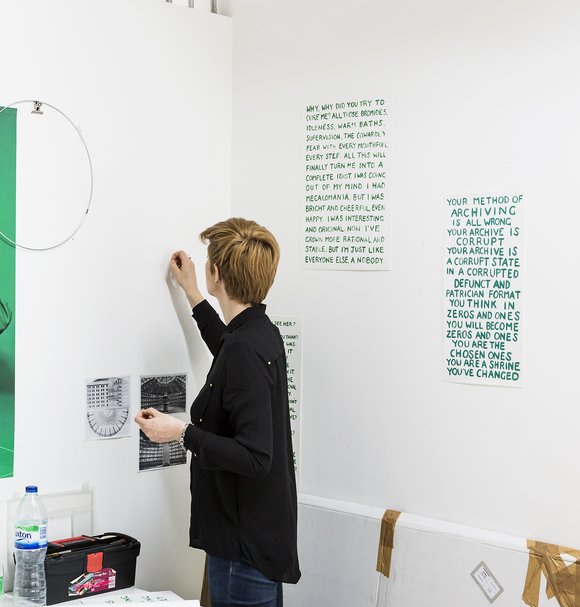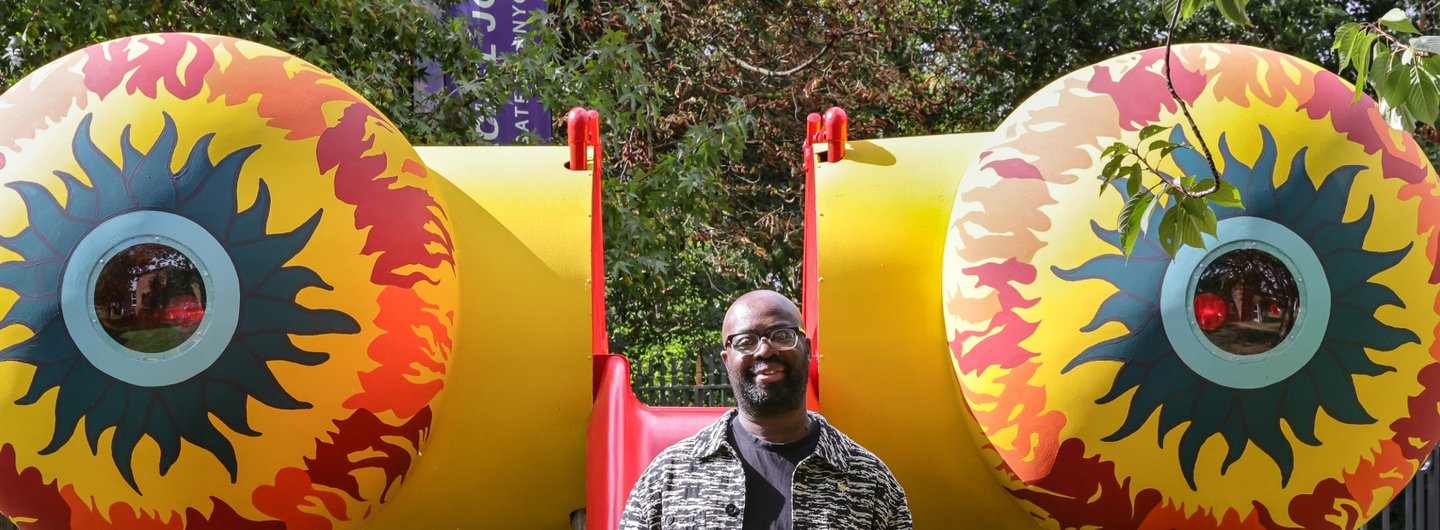
Key details
Date
- 10 November 2025
Read time
- 6 minutes
Harold Offeh, artist and Head of Programme for the RCA's Contemporary Art Practice MA, is making waves; with major shows, new commissions, and a prolific practice that deeply engages with the world around him.
Harold Offeh’s work explores how we perform, share, and make sense of contemporary life. Over the past two decades, he’s turned moments from pop culture, music, and everyday experience into playful acts of reflection – using humour and performance to unpack complex issues of identity, race, and belonging. From his re-enactments of iconic album covers to participatory installations and community projects, Offeh’s practice sits at the intersection of performance, pedagogy, and social engagement.
Now, in his first solo retrospective, Mmm, Gotta Try a Little Harder, It Could Be Sweet at Kettle’s Yard, Cambridge, Offeh looks back across 20 years of work that has shaped him as an artist and human being. The show’s title – borrowed from a Portishead lyric – neatly defines the three chapters of the exhibition and, for Offeh, evokes his early art foundation days.
Each phrase becomes a lens through which to navigate the works on display. “The Mmm reflects the in-between, the waiting that comes with the early days of starting out as an artist,” says Offeh. “It can suggest hunger, emotion, desire, uncertainty.” The next phrase, Gotta Try a Little Harder, anchors a room of early performance works. “A lot of my early work was about me just doing things – using myself, performing in places – these iterative, repeated attempts. It’s about curiosity, learning and fact-finding.”
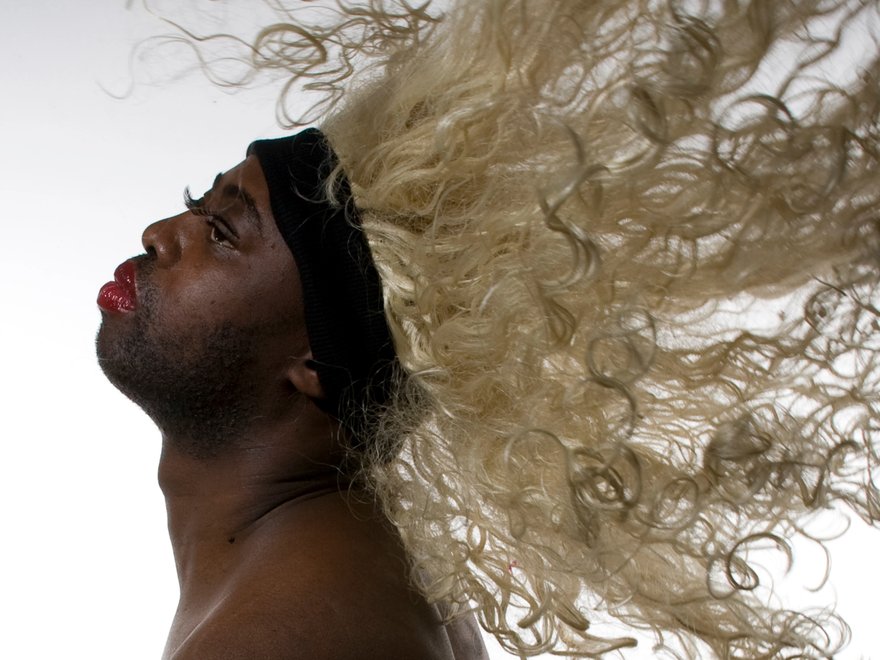
Harold Offeh Hairography 5, 2012 Photograph Photo: Eloise Calandre © Harold Offeh
Finally, It Could Be Sweet captures the sense of aspiration and hopefulness that underpins much of Offeh’s collective and community-based practice. “I’ve long been interested in Afrofuturism and speculative fiction,” he explains. “They’re utopian projects – it’s that idea of imagining that it could be sweet, that there’s some kind of payoff or possibility at the end.”
Looking back across two decades, Offeh can now see threads that weren’t obvious at the time. “There are repetitions and patterns; things I was clearly obsessed with and kept returning to in different forms,” he says. “I don’t really consider my work in relation to, say, the 2000s or 2010s, but of course, it was born out of those times. It’s a strange experience situating yourself within art and cultural history – but a really interesting one.”
As the recently appointed Head of Programme for the RCA’s MA in Contemporary Art Practice, Offeh encourages his students to consider their work in this context. “I often talk about what those three words – Contemporary Art Practice – actually mean,” he says. “For me, contemporary is about thinking about this moment, the conditions we’re working in, regardless of whether the work directly speaks to ‘now.’ And of course, the ‘now’ is always informed by what came before and what might come next – it’s all connected.”
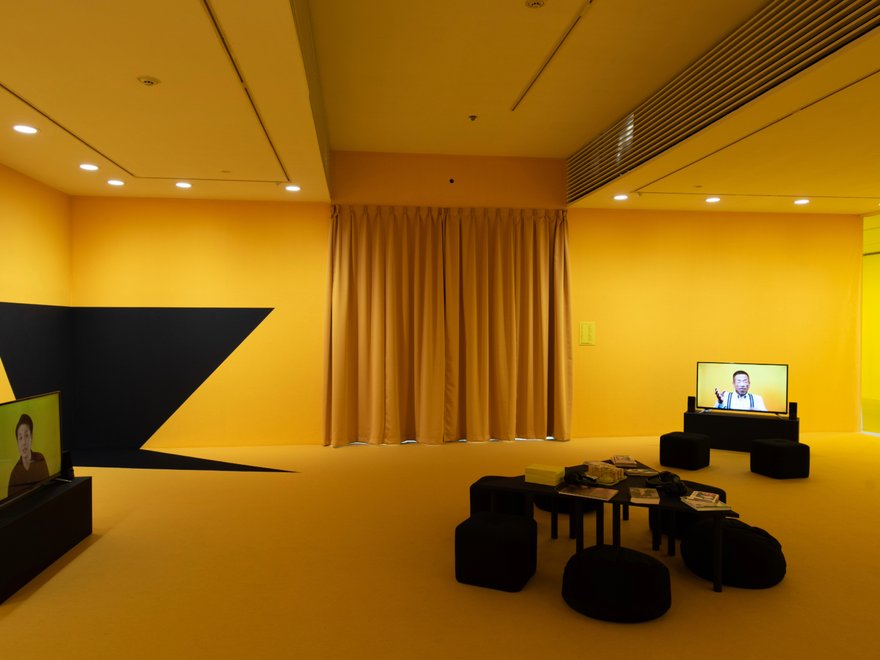
This interrogation extends to the “practice” element too. For Offeh, artistic practice is about doing; being brave and confident enough to turn ideas into form. “Those first two words, ‘contemporary’ and ‘art,’ can sometimes stop you from doing the third, because when you really think about what’s happening in the world right now, it can be disenabling. So it’s about navigating those challenges through making, through practice, in whatever form that takes.”
That ethos runs through an upcoming CAP takeover at Kettle’s Yard on 28 January 2026, where students will respond to the themes of Offeh’s exhibition – identity, play, archives, futurisms, and popular culture – through participatory workshops, talks, and performances. “It’s an opportunity to play, to test ideas, to see how their work sits with a particular audience,” says Offeh. “That’s when you start to test it and see whether it operates the way you intended, for better or worse.”
A central part of Offeh’s practice is this engagement with the world around him and a drive to communicate ideas in ways that invite participation and conversation. Whether through projects like Smile (2001–2003), which saw him attempt to hold a smile for as long as possible in front of a camera, or Covers (2008–ongoing), where he re-stages and re-inhabits iconic album covers, Offeh uses humour and embodiment to connect with audiences and open up deeper questions around representation and identity. “I like to say that if there’s one form of making – say you’ve worked with wood and metal and created a sculpture – there’s also another, equally exciting form of making, which is the staging, presentation, and display of the work," he says. "That’s another creative process in itself; it involves different skills, but it doesn’t have to feel like a chore.”
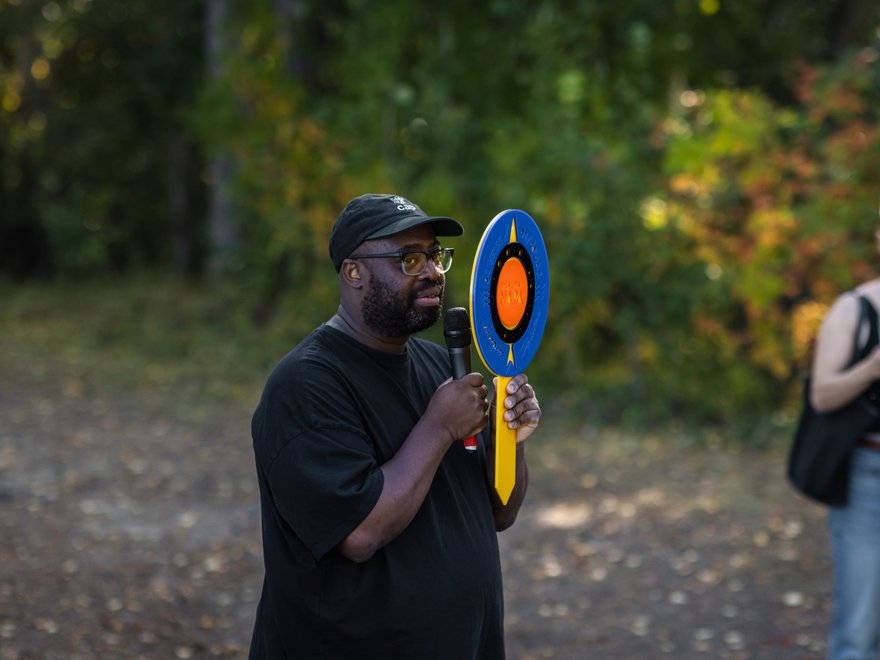
Harold Offeh received a Live Art Award, Anti-Festival, Finland. Photo: Akseli Muraja / ANTI – Contemporary Art Festival 2025, Kuopio, Finland
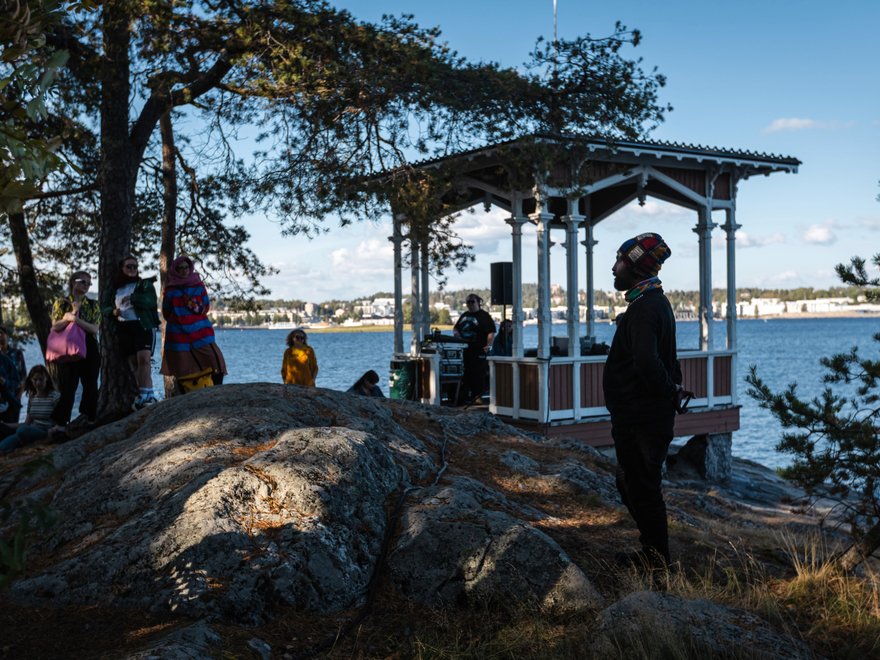
Body Landscape Memory. Anti-Festival, Finland. Photo: Akseli Muraja / ANTI – Contemporary Art Festival 2025, Kuopio, Finland
Offeh is evangelical about the importance of art and design to the wider world. His frustration with the lack of value placed on it – particularly within the UK – has fuelled his ambition to make work that is visible, generous and accessible. “The arts are often seen as a luxury, something nice to have rather than essential,” he says. “I’m thinking especially of education and schools, where art subjects have been, and still are, sidelined. What’s lost in that is the development of vital social and cultural skills – like visual literacy, which is incredibly important in a world dominated by images and technology.”
But beyond education, Offeh argues that art gives us the tools to make sense of being human. “Through studying literature, art, and cultural history, you learn to understand your own life; to ask what it means to be human, to navigate colonial histories, to feel jealousy or joy,” he says. “Our lives are made up of these reflective moments of culture, through music, fashion, design. We live our lives through art.”
That commitment to visibility and exchange continues to define his work today. Offeh remains one of the most distinctive voices in contemporary British art – something reflected in a number of major projects running concurrently, from The Mothership Collective 2.0 at the Baltic Centre for Contemporary Art in Gateshead, to a commissioned sculpture for the Art Play Festival at Dulwich Picture Gallery, and a nomination for the Live Art Award at Finland’s Anti Festival.
He is transparent about what enables this prolific output. “I won the Paul Hamlyn Foundation Award for Artists in 2019 – £60,000 over three years – which meant I could invest in my practice and build capacity for it. I try to be as transparent as possible and explain why I’m able to do certain things, because it’s about having built the infrastructure and capacity to make them happen.”
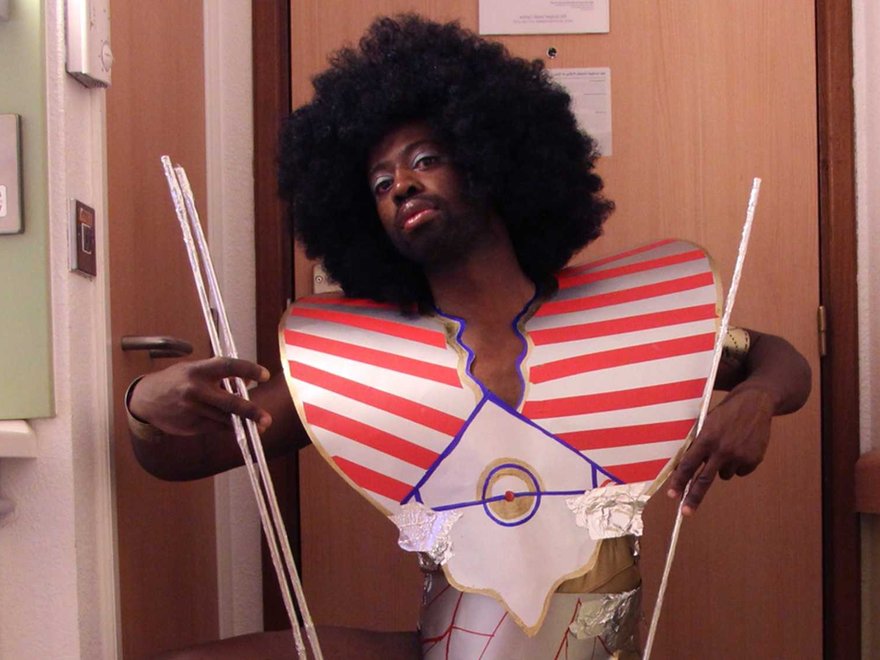
Harold Offeh Covers. After Betty Davis. They Say I’m Different, 1974, 2013. C-print, courtesy the artist
That infrastructure now includes a team of collaborators – artists, designers, and students – many of whom have been drawn into his orbit through teaching. Among his upcoming projects is Creating Patterns, a public commission for the iconic ice rink at Somerset House (Nov 2025–Jan 2026), which explores rhythm and repetition, and the connections between movement, music, and mark-making. Developed through workshops with roller skaters, the work translates their choreography into light, sound, and drawn patterns that ripple across the ice. “Two recent CAP graduates, James Johnson and Ma Pakian, are creating a soundtrack that will play between skating sessions – haunting but also dancey. It’s been a really nice process – playful, layered, and collaborative,” says Offeh. “It’s been a really nice process – playful, layered, and collaborative.”
That same sense of play runs through all of Offeh’s work, shaping how he learns and explores the world around him. “If you unpack the dynamics of play, it provides a fundamental basis for curiosity, exploration, critical dialogue, and questioning,” he says. “For me, creating space for my own play is vital. Play holds a range of emotions – frustration, anger, joy, pleasure – and I love that complexity. It’s also a much easier concept for people to engage with than ‘art.’”
It’s this capacity to disarm, to make the intellectual, tangible and the serious, joyful, that makes Harold Offeh such a singular voice in British art. And in his role as Head of Programme, Offeh brings that same spirit of experimentation and generosity to the next generation of artists.
